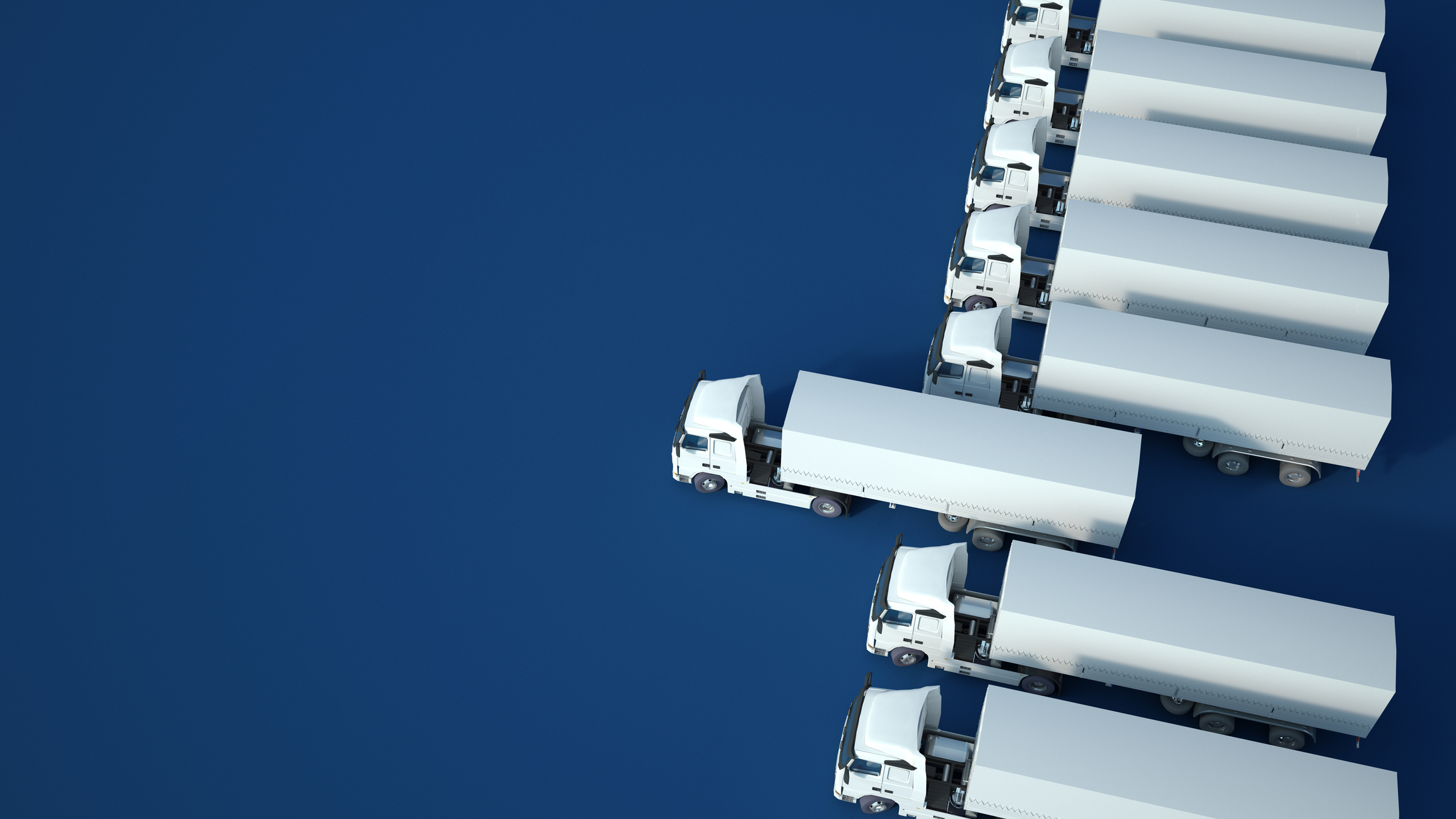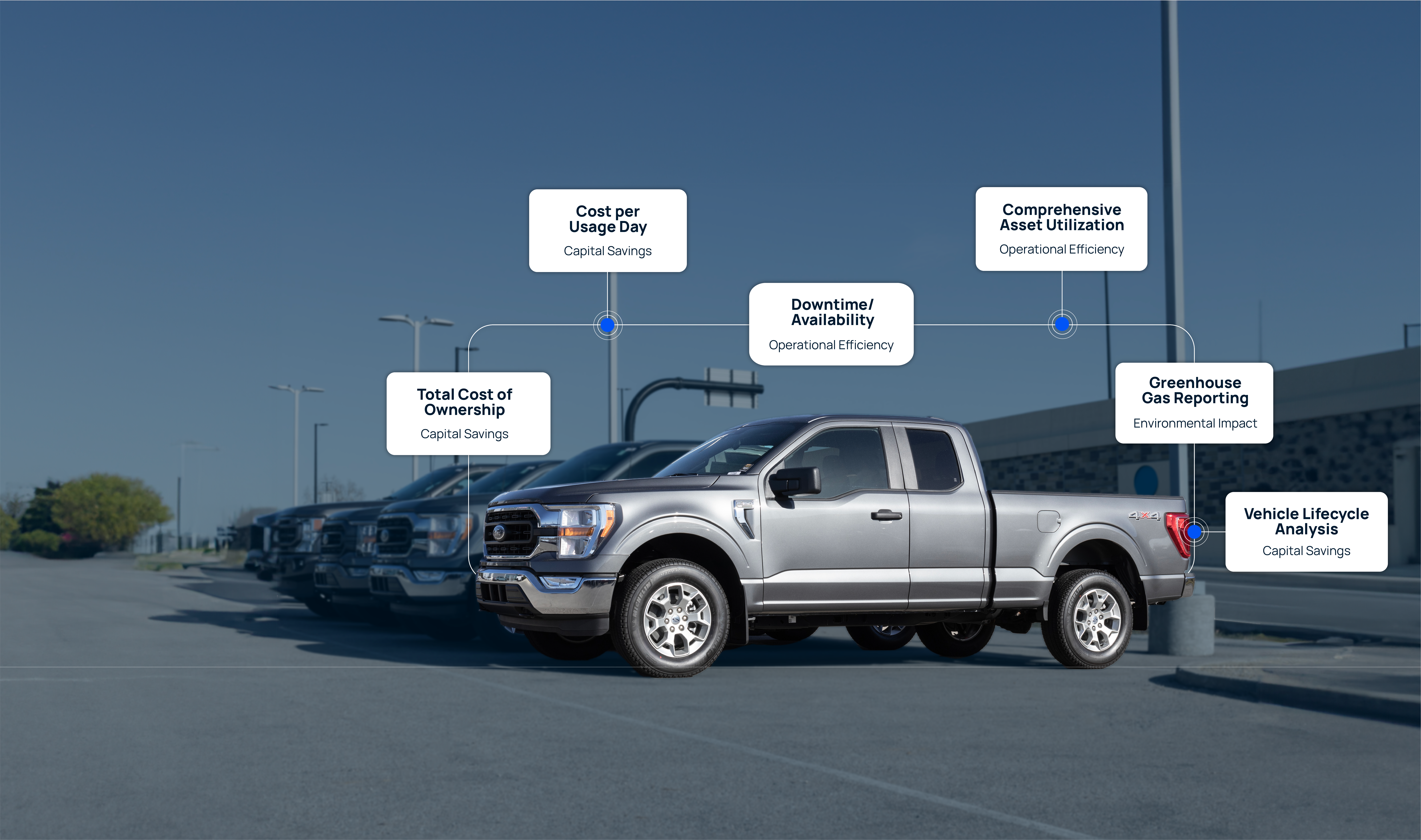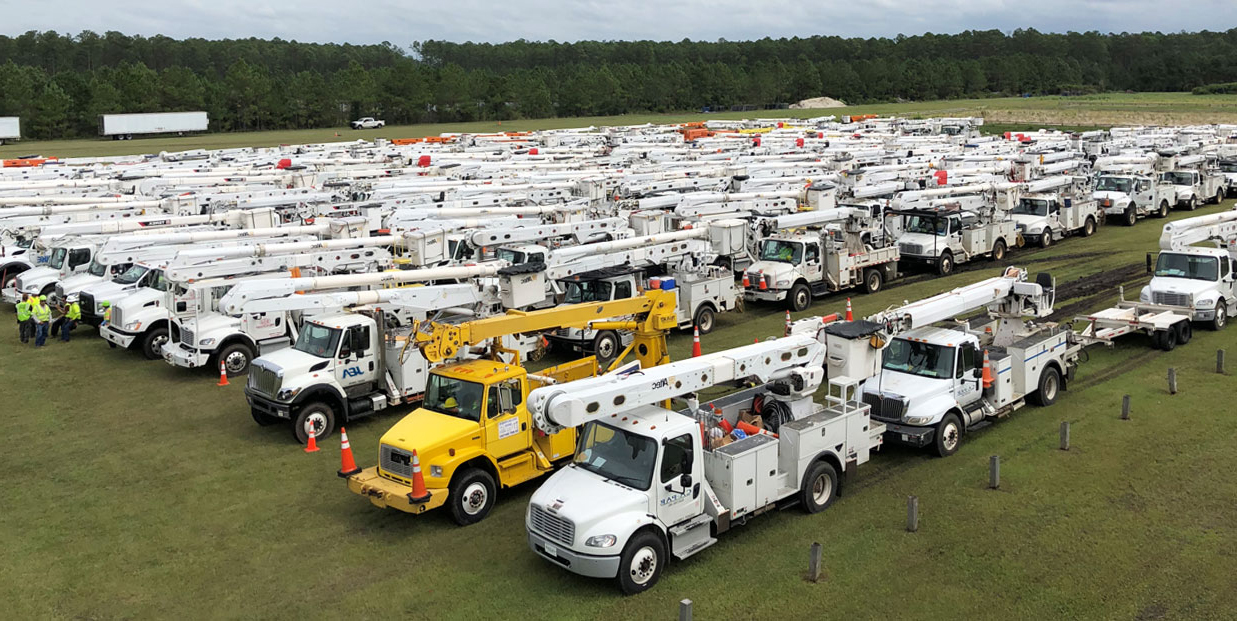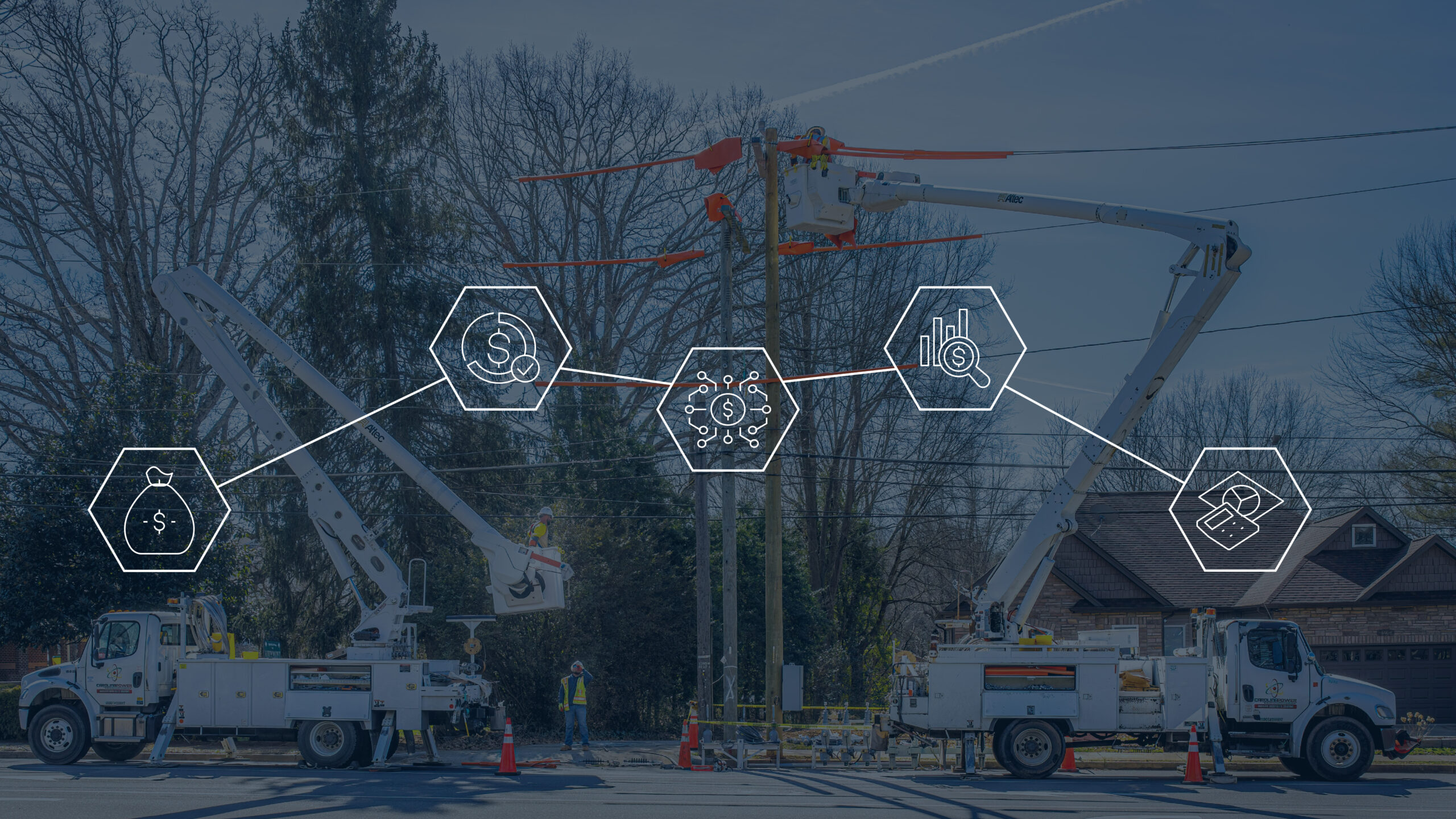
Why Should You Have a Sustainable Fleet?
Sustainable fleet strategy can appear in various ways for different organizations. For some, it may make sense to phase out ICEVs entirely and implement electric or hybrid alternatives. For others, it could include the reduction of fuel consumption by smarter route planning and minimizing idle times.
Regardless of the strategy, the common goal of fleet sustainability is twofold. First, to adopt practices that protect the wellbeing and future of the world around us. Second, to ensure the future success of your organization. This dual benefit is appealing for organizations striving to be more conscientious with their practices and comply with regulations, while still reducing waste and costs internally.
Benefits of a sustainable fleet
Let’s dive a bit deeper into some of the benefits of having a sustainable fleet.
- Consume less fuel
A common tactic for improving fleet sustainability is reducing fuel consumption. Fuel makes up one of the largest capital spends for most fleets, so one way to reduce this is to switch out ICEVs for EVs. Though this can be a major financial uptake, the lifetime savings on fuel and maintenance ultimately offset the initial investment. Additionally, there many nationally funded incentives and tax breaks available for fleets looking to go electric.
Some other strategies that encourage waste reduction and cost savings are fleet rightsizing and car sharing. Often times, fleets have far more vehicles than are needed to carry out operations. Rightsizing analyses can help determine whether vehicles are being underutilized so managers can adjust the fleet size accordingly. Similarly, if less vehicles could be used by implementing schedules for car sharing, this can reduce the amount of vehicles and capital wasted.
- Operate more efficiently
Smart route planning is another strategy that fleets can use for minimizing fuel consumption and improving fleet efficiency. Using telematics data, fleets can optimize routes which can save drivers time, decrease fuel consumption and reduce carbon footprint overall.
This strategy is especially effective for last-mile delivery vehicles, who can potentially consolidate more stops onto one route depending on vehicle load capacity. In addition to making operations more eco-friendly, optimizing routes makes for smoother operations overall and increase a fleet’s workload capacity.
- Meet emissions regulations
The Paris Agreement of 2015 brought together 193 parties across the globe to agree on taking action against climate change. As a result, governments at all levels are increasingly implementing emissions regulations and setting ambitious goals for upcoming decades. Many of these policies include emissions testing for personal vehicles, regulations for heavy-duty and commercial vehicles and mandatory reporting for the largest GHG sources as designated by the EPA.
Implementing green initiatives can set up your fleet for success as stricter regulations inevitably come around. Taking preemptive measures will make it easier for your fleet to be compliant down the line and avoid unnecessary fees for violations.
- Future-proof operations
A future-proof fleet is one that is well prepared for change and able to seamlessly adapt to new technologies. This is especially critical now with the upsurge of new vehicles, green technologies and the challenges that come with them. Managers will also confront an influx of new data sources and completely new metrics to keep track of.
It should be clear to most people by now that the sustainability movement is not just a temporary fad but is actually the beginning of a major transition. Fleets that embrace this will have an easier time adapting to the inevitable changes that we will see in the next few years.
READ MORE: Are Sustainability and Future-Proofing the Same Thing?
Supporting sustainability with data
At the end of the day, sustainability should be a top priority for every fleet manager striving for long-term success. Whichever strategy or technologies they chose to implement, one tool will play a crucial role in an effective transition: fleet data.
When streamlined into a business intelligence platform, telematics, FMIS and fuel cards can offer a deeper look at what’s going on within a fleet. These data insights help managers to quickly identify opportunities for waste reduction, track GHG emissions over time and understand the impact of introducing EVs. To successfully move forward as a sustainable fleet, reporting on the impact and improvement your fleets has made will be an important factor.
To find out how our BI Platform can support your fleet’s sustainability initiatives,
schedule a demo with a member of our analytics team today.

Priscilla Valdez
Content Specialist
Priscilla Valdez is a content specialist at Utilimarc. She enjoys storytelling and sharing industry insights through writing that is compelling and dynamic. See more from Priscilla


